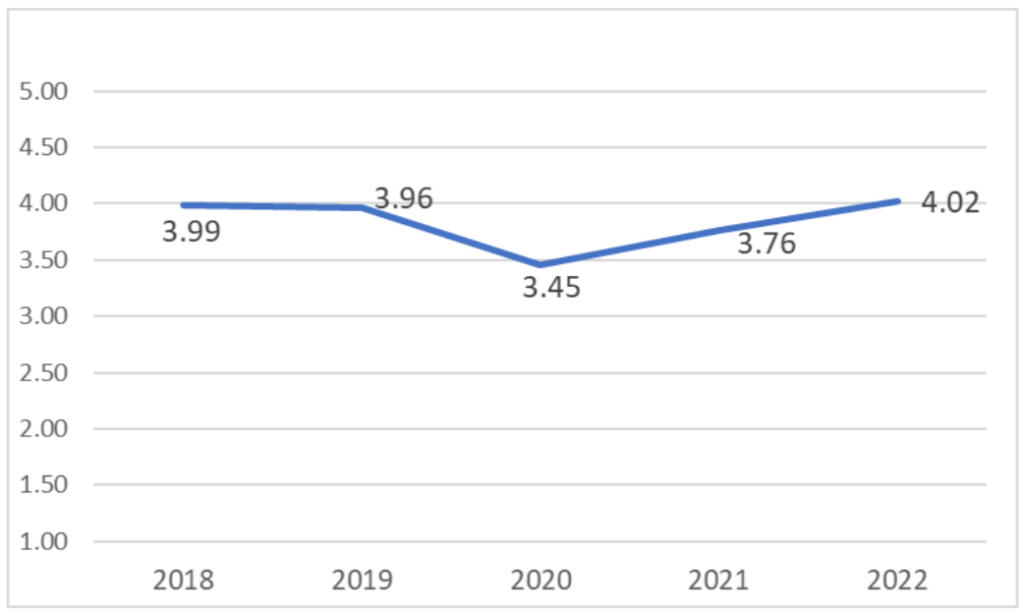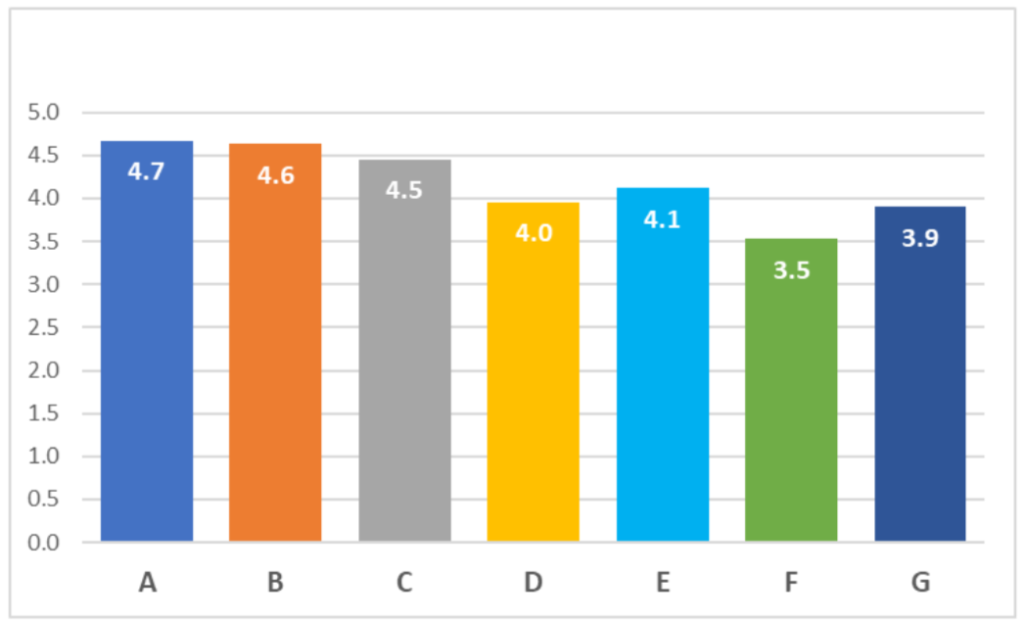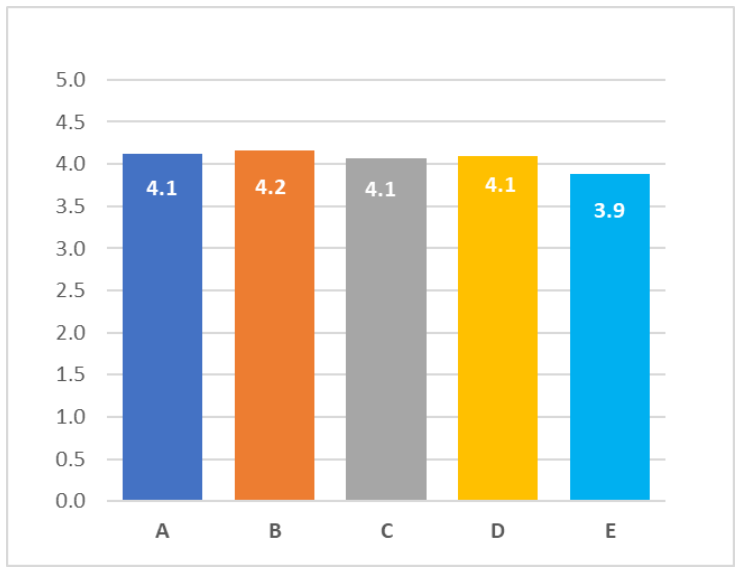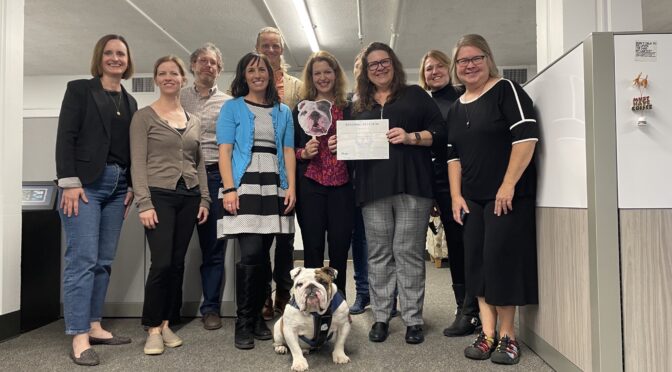I want to share with you the most recent results from the ITS section of this year’s Survey of Administrative Services. First, thank you to all who participated in the survey. The number of responses was significantly higher than the past few years and provides valuable feedback to help ITS assess and provide services that meet the needs of our students, faculty, and staff. This year’s results show that overall satisfaction with ITS increased from 3.76 in 2021 to 4.02 in 2022 (Figure 1).

Satisfaction with ITS staff was positive overall (Figure 2). However, there are some areas that clearly need improvement. Satisfaction with communication about the status of tickets decreased to 3.5 and will be an area of focus in the upcoming year.

A. ITS staff are courteous
B. ITS staff are professional
C. ITS staff are knowledgeable
D. ITS staff resolve my requests in a timely manner
E. ITS staff resolve my requests without errors
F. ITS staff provide regular communication about the status of my requests
G. When I contact ITS, I have confidence my requests will be resolved to my satisfaction
Satisfaction with IT services also improved overall (Figure 3). However, satisfaction with how we keep campus aware of changes to technology has decreased and will also be an area we will strive to improve in the upcoming year.

A. I have the right technology tools I need to do my job effectively
I know how to use the technology I need to do my job effectively
C. I have the right level of support to use technology effectively
D. I know how to get training when I need to learn new technology
E. ITS keeps me aware of changes to technology that will impact my work
The past couple of years have been a time of significant technological disruption. From the rapid adoption of online communication and instructional tools to unstable supply chains and staffing limitations, 2020 and 2021 presented many challenges. Our supportive campus partnerships allowed us to weather this storm and we are grateful for those strong relationships.
ITS leadership will continue to assess your feedback and develop initiatives to help improve services based on the survey results. In the upcoming year, we will renew our focus on fundamentals and leverage the tools and procedures we have in place to better meet our communication and service commitments to campus.
— Keren Fiorenza, ITS


